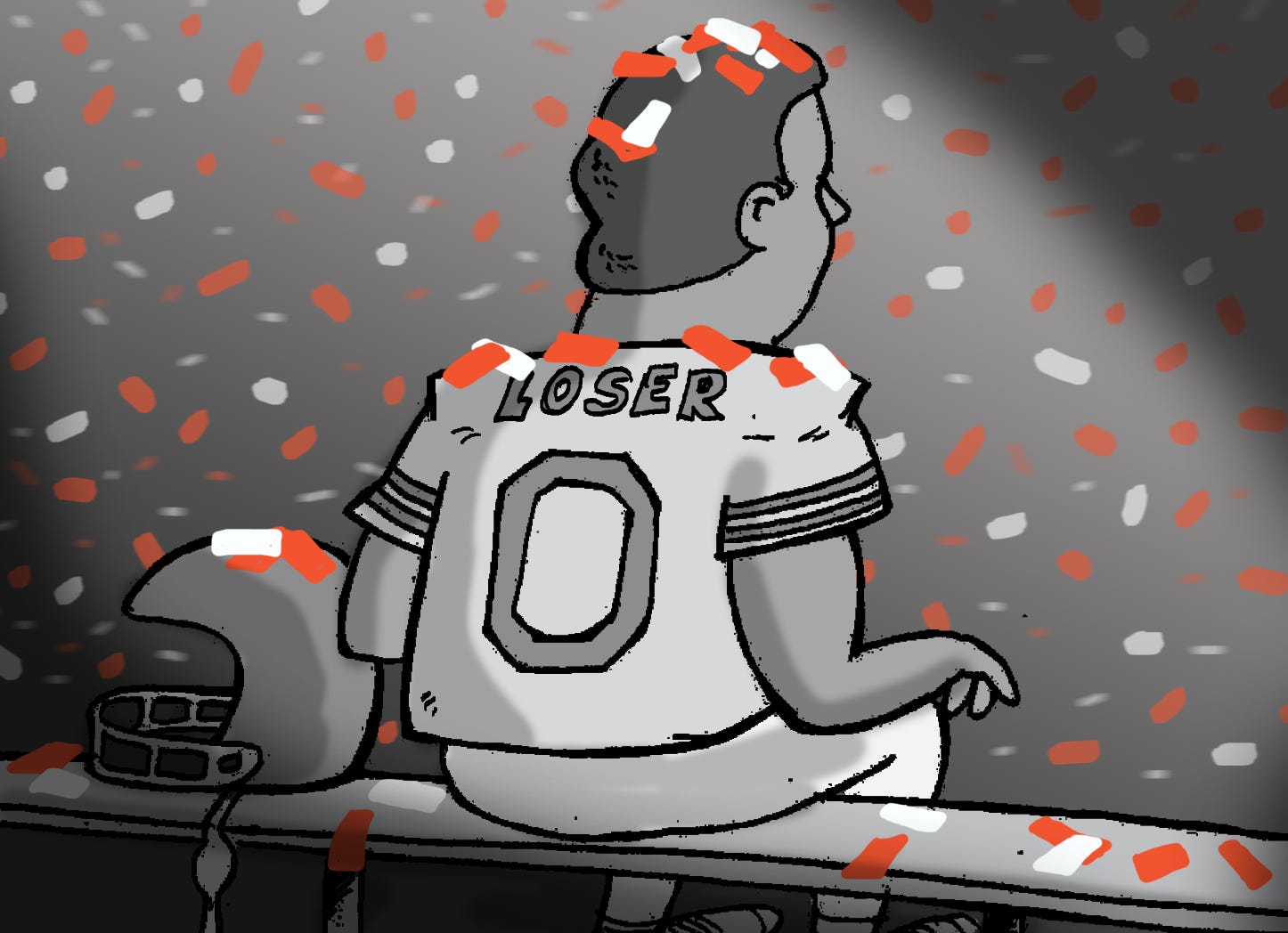The Winning Quality of Losing
You can’t win big if you don’t risk losing
The Kansas City Chiefs won Super Bowl LVIII. Another way to say that is that the San Francisco 49ers lost. In the final moments, the 49ers’ offense sat helplessly on the sidelines, hoping the Chief’s make-or-break overtime drive would fail – but those hopes fizzled when Patrick Mahomes tossed a short touchdown pass that brought the game to an abrupt end. While the Chiefs celebrated, television cameras focused on the shell-shocked faces of the 49ers, shoulders slumped, despondent as they absorbed the finality of their defeat. One player sat motionless, stirring only to shake off the celebratory confetti that had rested on his head.
Losing sucks.
Being a litigator means opening yourself to the prospect of losing. While I’ve been on winning teams far more often than losing teams, that doesn’t mean I have never seen cases tossed out on summary judgment or monster verdicts obliterated on appeal. I’ve suffered adverse verdicts, and I’m not sure which is more heartbreaking: watching a convicted defendant be shackled and led off to prison or seeing a family realize that they’ll receive no compensation for a catastrophic injury they’ve suffered. (It’s probably the latter).
But there are other kinds of losing. When a plaintiff’s case settles for less than it is worth – for less than a client needs and deserves – that is a loss. When an innocent criminal defendant takes a plea to avoid the risk of a long prison sentence, that is a loss, too. Make no mistake, a good settlement is a win, but anyone who has accepted a less-than-just settlement for fear of losing at trial can’t truly consider themselves “undefeated.”
Sometimes, a less-than-just settlement is the best possible result – especially after an adverse ruling or when a bad fact emerges during discovery. A great trial lawyer once told me, “I tend to win cases when I have good facts, and sometimes I lose when I have bad facts.” It takes confidence to admit defeat, but it shows he had enough courage to take on tough fights. Real defeat comes only when we walk away from a fight for fear of losing.
Legendary investor Charlie Munger, Warren Buffet's longtime partner, was a competitive player of the card game contract bridge. Charlie didn’t like to lose, but when he did, he didn’t get upset as long as he knew he was “properly playing the hand.” In the book “Poor Charlie’s Almanac,” the editor explains, “Charlie scores himself not so much on whether he won the hand but rather how well he played it.” It’s sound wisdom, but poor consolation when the stakes are high.
I once sat with a trial lawyer during jury deliberations at a high-stakes trial. Liability hinged on the jury’s interpretation of a very specific legal nuance. Because of that, the defense never mustered a realistic offer. The insurance company lawyers hoped the substantial risk of losing would cause the plaintiffs to take a lowball deal. While we waited, I assured the trial lawyer that he had presented a great case, and we could be proud knowing we did everything we could, even if we lost. He said, “That may be true – but it’s better to win.” A few hours later the verdict came down in our favor.
Winning is definitely better, and it is all the sweeter when the stakes are high, the odds are long, and the cause is just. Once we’ve suffered a loss and learned we can endure it and move on, we become more willing to risk losing in the future, especially when a case deserves to be fought all the way to trial. To win big, you must risk losing. If you risk losing enough, eventually you will lose. However, it’s better to be beaten than to be afraid of the fight.


